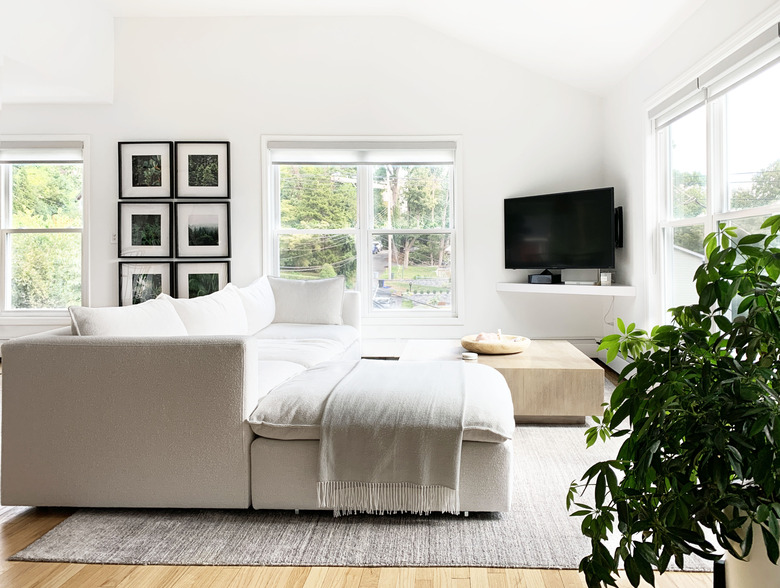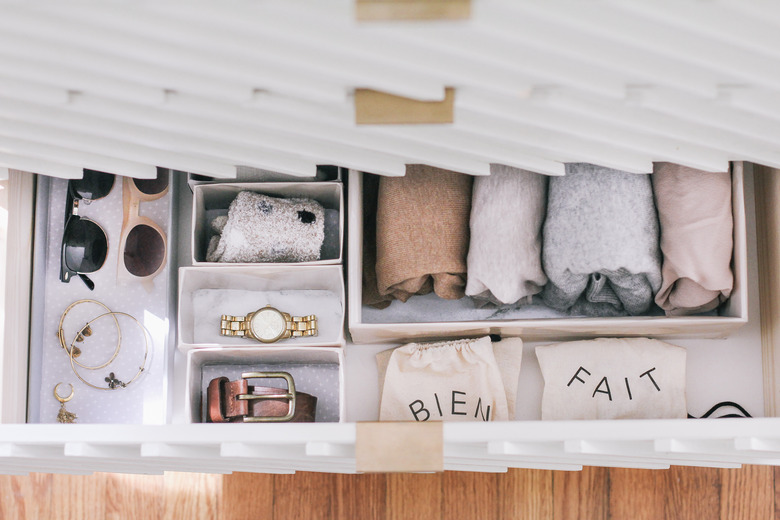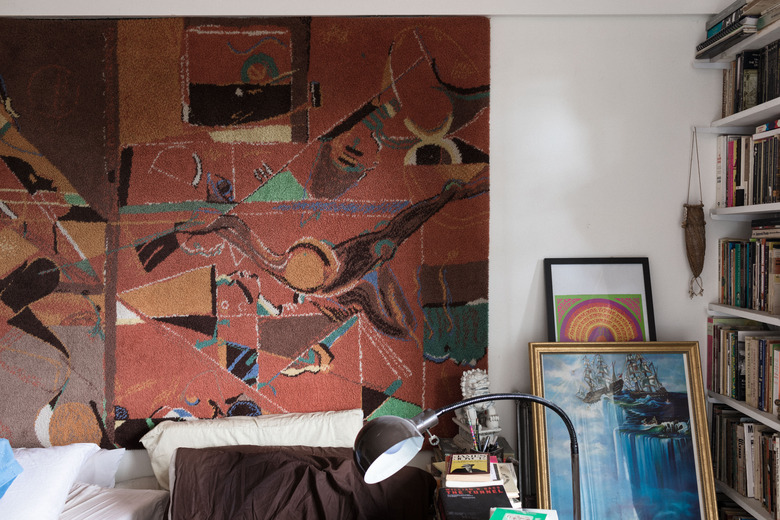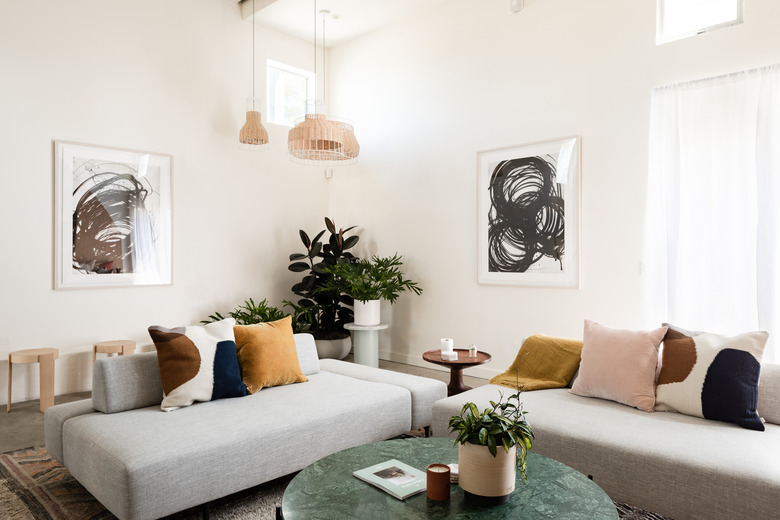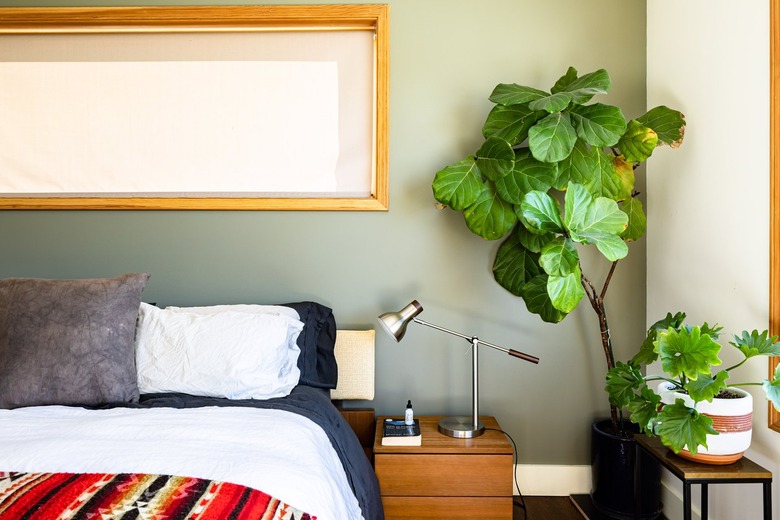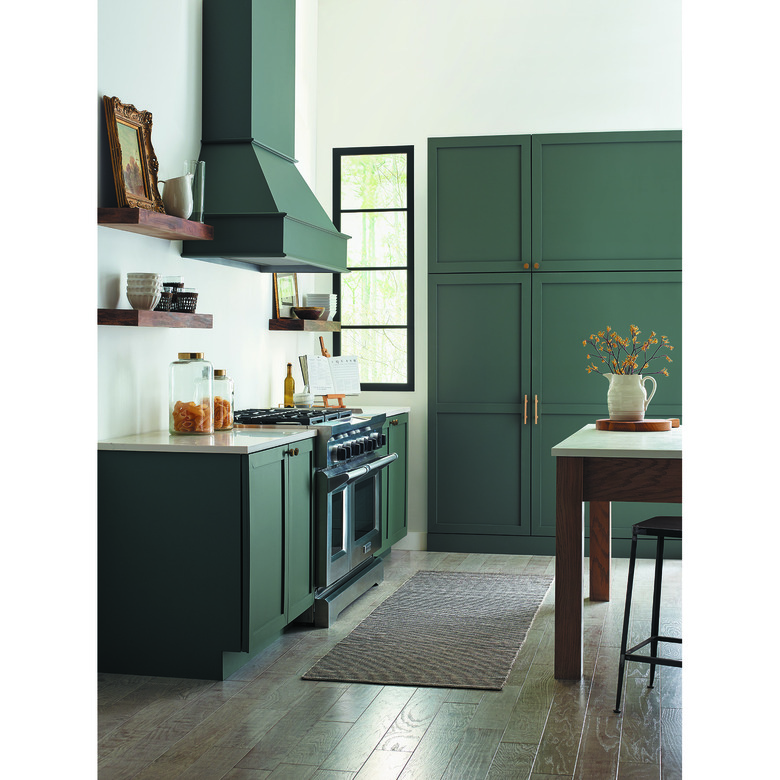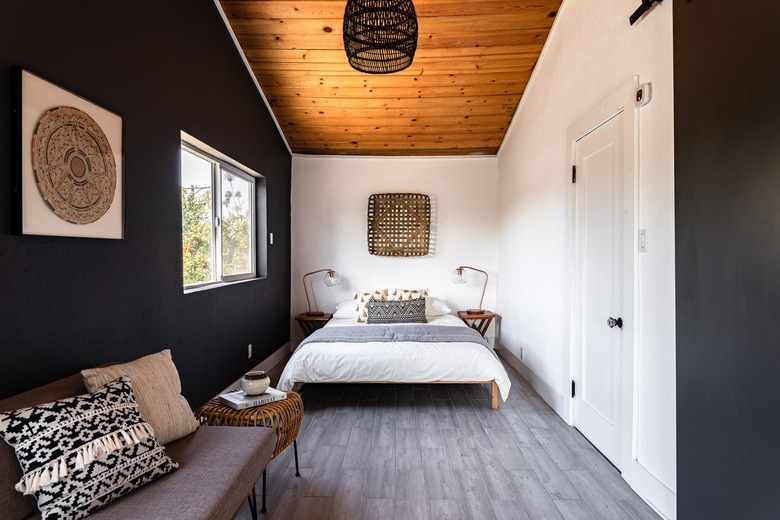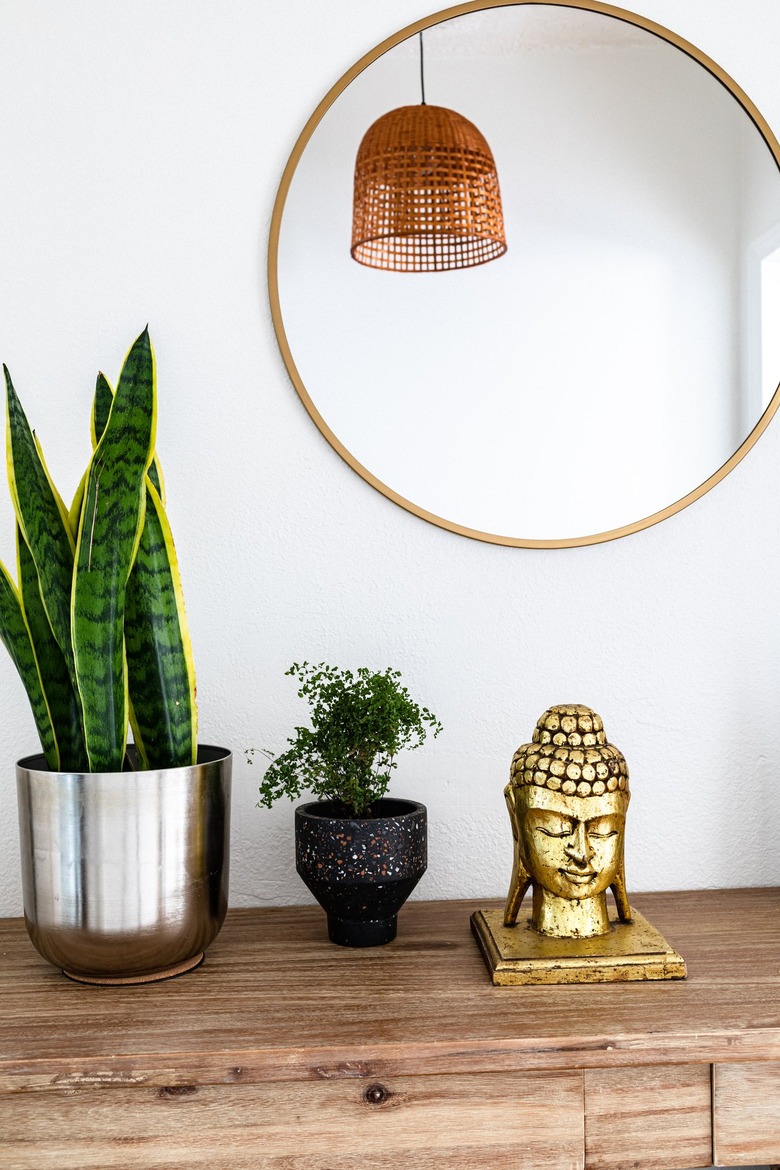9 Small Changes You Can Make To Your Space To Reduce Stress And Anxiety
Is your home stressing you out? It might be, whether or not you're aware of it. And it isn't only because you're there all the time. (Or that the people or animals you share it with are also there all the time.)
Anyone who's spent the last 200+ days of the pandemic at home has become intimately familiar with the contours of their own spaces — for better or for worse. For me, the imperfections in my kitchen floor, which I was too busy to notice when I was in an office all day, has become a daily obsession. Ugh, why did we choose cork?! But then, there's also the profound psychological boost I experienced when my husband suggested we keep the bedroom shades open to brighten things up, prying eyes be damned.
"Our spaces matter," says Gala Magriñá, founder and principal of the holistic interior design firm Gala Magriñá Design in New York. "They affect our lifestyle and behavior, those in turn affect health outcomes."
As part of her new in-person and virtual consulting service, Beyond Spaces, Magriñá helps diagnose what, in your home, might be adding to the daily stress of living during a pandemic. Informed by feng shui and the tenets of holistic design, her remedies go beyond beauty and function, into the energy of a space.
To do so, she goes beyond choosing art or furnishings — although those choices matter, too. It's about creating a sense of calm and order, welcoming good energy and redirecting the bad. And about creating a home that is a space you truly want to be in (instead of where you are stuck in quarantine).
Here's what Magriñá along with color expert Sue Wadden of Sherwin Williams suggest to psychologically detox, de-stress, and transform your space into a place of calm — without a major overhaul.
1. Clear the Clutter
1. Clear the Clutter
"Clutter is the first major one," says Magriñá. Clutter represents holding on to emotional baggage and things from the past, she says, which weighs you down. "That doesn't allow you to move forward in so many ways. The home doesn't reflect the person you are or the you you want to be in the future."
Quick, and regular, Marie Kondo-esque purges can create literal space on your shelves, in your drawers, and on other surfaces, but, more importantly, the psychic space to welcome something new.
2. Address Anything Ignored or Unfinished
2. Address Anything Ignored or Unfinished
If you are staring at the same crack every night, or, like me, overly worn flooring, that's stress, says Magriñá. "You think, Oh, I have to do something about that." And you're probably more stressed from making the mental note every day than you would be from fixing it.
It goes beyond repairs, too. "I see, so many times, unfinished areas of decor. Someone will have six pieces of artwork that have never been hung."
Manage the stress of the never-ending household to-do list by crossing small projects off, one at a time.
3. Consider Your Corners
3. Consider Your Corners
Stagnant energy pools in corners, says Magriñá. A lot of corners tend to be dark, unused spaces. The solution? "Literally shining a light on them," she says.
You can also consider adding a plant in a corner, which brings us to...
4. Bring Nature In
4. Bring Nature In
"If a plant can grow there, bring nature in," says Magriñá. It's an instant change, as any plant parent can attest.
5. Warm Up Your Paint
5. Warm Up Your Paint
Color can have a profound psychological effect. Bold colors, obviously, but even white, says Magriñá. You might think of an all-white space as blank and clean, but it can sometimes feel sterile — lacking warmth.
"Colors with warm undertones as well as earth tones help create a sense of calm," says Sue Wadden, director of color marketing at Sherwin-Williams. "These hues are nurturing in a sense that they make us feel safe and secure."
Wadden suggests a few specific colors — Poised Taupe SW 6039, "a warm brown that just envelops you;" Bona Fide Beige SW 6065 and Morris Room Grey SW 0037, "light and warm hues that have just enough softness to channel a feeling of focused Zen in a living room and even a home office;" Succulent SW 9650 and Taiga SW 9654, "nature-inspired greens with gray undertones" that "can add a sense of freshness to any space."
6. Let in the Light
6. Let in the Light
When natural light filters into the room, it can completely change a space. And while it's not likely you can add more windows without a major renovation, you can maximize what you have.
"Clean your windows," says Magriñá. "They are your eyes to the world." Consider how you feel when your "eyes" are dirty and murky.
Then, she says, place yourself directly in that light as much as possible. Especially for those of us with impromptu home offices, place your desk near a window as opposed to an interior wall. "Ideally, it's one that opens, so at least once a day you can freshen and air out the space," she says.
7. Assume the Power Position
7. Assume the Power Position
Putting furniture in the power position is one aspect of feng shui that is easy to adopt. The most important piece is the bed, but also a desk, in an office area. "Ideally you want to be facing the front door so you're not vulnerable to someone coming up behind you," says Magriñá.
8. Consider Your Entryway
8. Consider Your Entryway
People need to understand what Magriñá calls the "mouth of chi" — or your entryway. It's where energy enters your home, and all too often, it is not considered. "With so many front doors, there's junk outside — it literally blocks the energy coming in," says Magriñá.
9. Ask — Is This Me?
9. Ask — Is This Me?
For many clients, Magriñá deals with spaces that haven't evolved with the person. Maybe it's outdated decor, or sentimental pieces that no longer fit your aesthetic. You need to look around, and ask, Is this really reflecting who I am, and who I want to be? says Magriñá.
Consider it part of your mental health.
Says Magriñá, "Getting intentional about your spaces should be part of your wellness practice." We focus on diet and health and beauty, she says, and we can and should be focusing on our environment, too.
